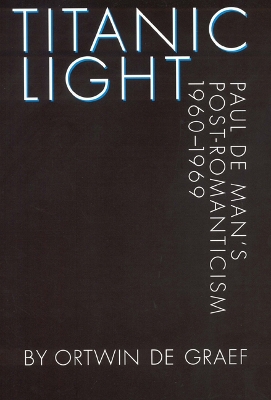Notoriety struck the Belgian-born literary critic Paul de Man more than once. First came his fame as one of the principal-and most controversial-theorists of deconstruction in the 1970s and early 1980s. After his death in 1983, notoriety struck a second time. In 1987, a Belgian scholar discovered that de Man had written in the early 1940s for several journals that collaborated with the Nazis during the German occupation of Belgium. The revelations precipitated debates that have yet to subside. The scholar who set loose this furor was Ortwin de Graef, who has since embarked on a comprehensive survey of de Man's writings. The first book, Serenity in Crisis, covered de Man's career from 1939 to 1960. Titanic Light examines de Man's work from the 1960s. Titanic Light concentrates on de Man's increased interest during the 1960s in Romantic (and post-Romantic) literature and criticism. De Graef follows in detail de Man's strong readings of the works of Hoelderlin, Rousseau, and Wordsworth. He connects de Man's interpretations of these and other writers with his earlier critical works and his later deconstructive writings. In addition, de Graef places de Man's essays from the 1960s (some later collected in the influential volume Blindness and Insight) in the context of the critical debates of that era-debates about structuralism, Marxism, phenomenology, American New Criticism, and other critical schools. The result is a penetrating portrait of a critic who, during the sixties, reached full maturity as an interpreter of literature and contemporary criticism. Combining sympathy and skepticism for its subject, Titanic Light continues what is already the most insightful, thorough, and balanced examination of de Man's intellectual career.
- ISBN10 0803216955
- ISBN13 9780803216952
- Publish Date 1 March 1995
- Publish Status Active
- Publish Country US
- Imprint University of Nebraska Press
- Format Hardcover
- Pages 289
- Language English
